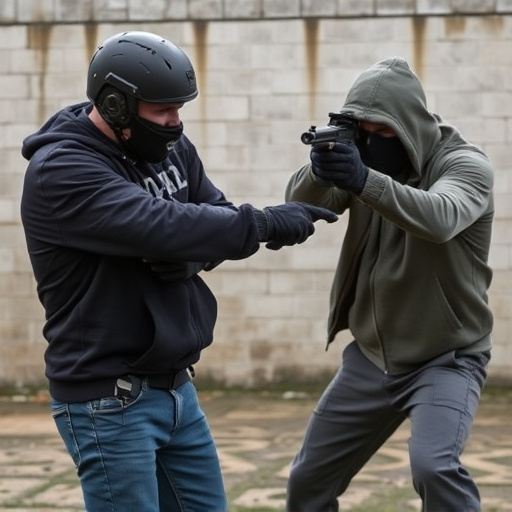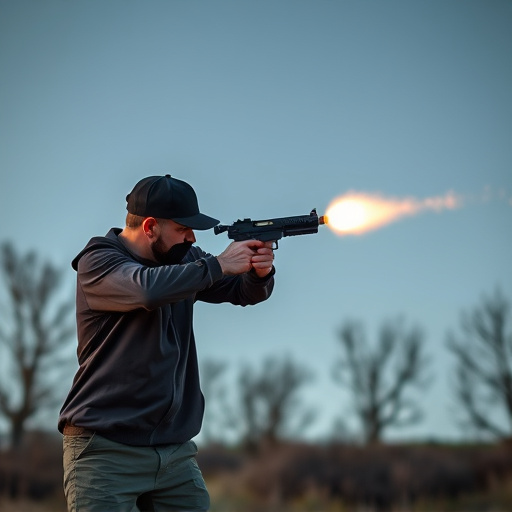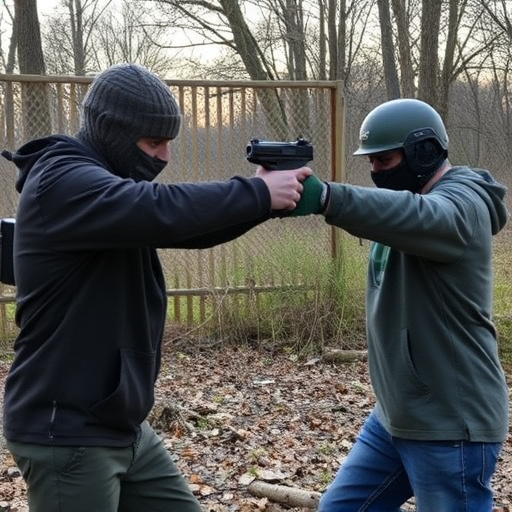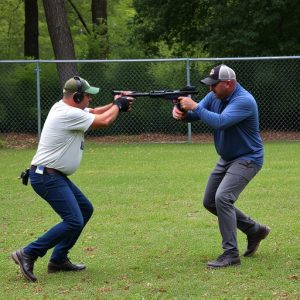Stun Gun Laws: State-by-State Guide to Rechargeable Device Restrictions
Rechargeable stun devices for sale in the US face a patchwork of state-level regulations, with laws…….
Rechargeable stun devices for sale in the US face a patchwork of state-level regulations, with laws varying widely from lenient to strict. While some states allow open carry without licensing, others mandate registration, age restrictions, and specific voltage limits. Understanding these local rules is crucial for responsible ownership, especially when navigating different legal landscapes between jurisdictions. Thorough research ensures compliance, enabling individuals to make safe and legal decisions regarding the purchase and use of rechargeable stun devices.
“Unraveling the legal landscape of stun guns in the US is a crucial step before considering self-defense. This comprehensive guide navigates the state-by-state restrictions on stun gun ownership and use, offering an essential overview for prospective buyers. From understanding the regulations to exploring the legal considerations behind rechargeable stun devices, this article provides a detailed analysis.
Discover who can legally own and carry, learn about purchasing options, and be aware of common exclusions. With a focus on staying informed, it’s time to explore your rights and choices in the market for rechargeable stun devices.”
- Understanding Stun Gun Regulations: An Overview
- State-by-State Analysis of Stun Gun Laws
- Legal Considerations for Rechargeable Stun Devices
- Who Can Own and Carry a Stun Gun?
- Purchasing Stun Guns: What You Need to Know
- Common Exclusions and Restrictions
Understanding Stun Gun Regulations: An Overview

In the United States, regulations surrounding stun guns, or rechargeable stun devices for sale, vary significantly from state to state. This variability makes it crucial for individuals considering purchasing a stun device to understand the specific laws in their area. Some states have relatively lenient restrictions, allowing open carry with minimal licensing requirements, while others enforce strict regulations that may include mandatory registration and age restrictions.
Understanding these regulations is essential for responsible ownership. Many states classify stun guns as less-lethal self-defense tools, subject to certain controls. This often involves limiting the voltage output and prohibiting the use of stun devices in specific settings like schools or courthouses. Staying informed about local laws ensures compliance and helps individuals make informed decisions when purchasing a rechargeable stun device for sale, promoting both safety and legal carrying practices.
State-by-State Analysis of Stun Gun Laws

In the United States, the legal landscape surrounding stun guns varies significantly from state to state, creating a patchwork of regulations that potential buyers must navigate. A thorough understanding of local laws is crucial before purchasing and possessing any rechargeable stun devices for sale in the market. Some states have relatively liberal policies, allowing open carry or issuing permits for self-defense tools like stun guns. These places often treat stun devices as non-lethal alternatives to firearms, with less stringent age restrictions and minimal training requirements.
On the other hand, several states have enacted stricter measures, classifying stun guns as weapons and imposing various restrictions. This may include mandatory waiting periods, background checks, and specific registration processes for ownership. Some even prohibit their use in certain public places or require them to be stored in locked containers. These variations underscore the need for consumers to stay informed, as traveling between states with differing regulations could lead to legal complications regarding stun gun possession and usage.
Legal Considerations for Rechargeable Stun Devices

When considering the legality of rechargeable stun devices, it’s crucial to understand that regulations vary widely across states in the US. While some areas allow the possession and use of stun guns for personal protection, others have stricter restrictions or outright ban them. Rechargeable stun devices for sale often fall into a legal grey area due to their unique nature—a combination of a conventional self-defense tool and modern technology.
In many jurisdictions, stun devices are classified as weapons, subject to the same regulations as firearms. This means potential buyers must undergo background checks, pay taxes, and comply with storage requirements. Some states differentiate between stun guns and tasers, with distinct laws governing their use and possession. It’s essential for individuals interested in purchasing a rechargeable stun device to thoroughly research the specific laws in their state to ensure compliance and avoid legal repercussions.
Who Can Own and Carry a Stun Gun?

In most states, individuals aged 18 or older who are not prohibited by law can own and carry a stun gun for self-defense purposes. The specific regulations vary across different states, but generally, purchasing a stun device involves a background check to ensure it’s bought and used responsibly. Some states have strict requirements, mandating permits or registration for stun guns, while others allow open carry without a permit. It’s crucial to research and understand the laws in your state to comply with regulations regarding ownership and public carrying.
Rechargeable stun devices for sale are becoming increasingly popular as an accessible self-defense option. These devices offer a convenient alternative to traditional stun guns, providing users with a readily available power source through rechargeability. As with any stun device, it’s essential to follow local regulations and use them responsibly for personal safety only.
Purchasing Stun Guns: What You Need to Know

When considering purchasing a stun device, it’s crucial to understand the legal landscape in your state. While stun guns are generally legal across the U.S., restrictions vary widely from one state to another. Always check local laws before making a purchase, as some states have specific regulations regarding stun gun size, voltage, and even who can own them.
Rechargeable stun devices for sale are a popular choice due to their cost-effectiveness and convenience. However, ensure that the device meets your state’s requirements. Some states mandate registration or licensing for stun guns, while others have restrictions on where and how you can carry them. Understanding these regulations beforehand will make the purchasing process smoother and help you avoid any legal issues.
Common Exclusions and Restrictions

Many states have specific restrictions and exclusions when it comes to stun guns, especially regarding their design, power output, and accessibility. One common restriction is that stun devices must be non-rechargeable, with disposable batteries as a standard requirement. This rule aims to prevent users from easily replenishing their device’s power, thus reducing the potential risk of misuse or accidental discharge. Additionally, several states ban the sale and possession of stun guns with high voltage outputs, typically above 120,000 volts, considering them too powerful for personal protection.
Another set of exclusions often includes stun devices designed for law enforcement or military use, which may have more advanced features and higher voltage levels. Some states also prohibit the sale of stun guns to certain individuals, such as felons, individuals on probation, or those with a history of domestic violence, ensuring these devices are not accessible to those with a higher risk of misuse. Moreover, regulations may vary regarding open carry versus concealed carry permissions, further restricting where and how stun devices can be legally carried.
When considering the purchase of a rechargeable stun device, understanding your state’s specific regulations is paramount. Each US state has its own set of laws and restrictions regarding stun guns, with varying permits, age requirements, and permitted use cases. This article has provided a comprehensive overview, including a state-by-state analysis, to help potential owners navigate these legal considerations. Remember, staying informed about local legislation ensures you make a responsible and legal purchase, keeping yourself and others safe. With this knowledge in hand, you’re now equipped to explore the market for rechargeable stun devices with confidence.


